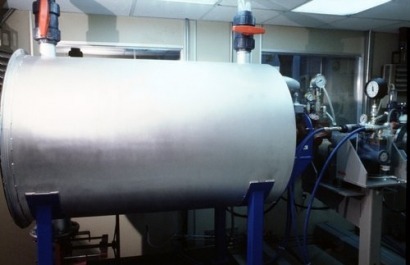
The Massachusetts Department of Environmental Protection (MassDEP) has issued final rules which amends its status on solid waste and wastewater disposal. The move is designed to tap the hidden energy value of food and other organic materials, and use more of that waste for renewable energy production and composting.
Currently, over a million tons of food waste and other organic material are disposed of by food processors, large institutions and residential households per year in Massachusetts. Around 100,000 tons of this waste is recycled or composted but the state wants to divert an additional 350,000 tons per year into energy production or composting by 2020.
“Organics comprise about 25 percent of the solid waste we dispose of each year, and those materials take up valuable space in our landfills and incinerators and create greenhouse gases,” said Commissioner Kenneth Kimmell of the MassDEP. “When we merely discard organics, we are wasting a great opportunity to capture the economic and environmental benefits from recycling and converting this material into clean renewable energy and valuable fertilizers.”
The amendments will help to remove barriers to the development of certain types of recycling, composting and other green technologies such as anaerobic digestion (AD) which turns organic waste into biogas which can then be used for heat and electricity generation. The rules now help to simplify the process of acquiring a permit for the constructing such facilities and for adding organic material to AD units at treatment plants while also ensuring existing public health and environmental standards are maintained.
“Massachusetts has made huge advances in wind and solar power since Governor Patrick took office - with both technologies going from just over three megawatts each in 2007 to 174 megawatts of solar and 61 megawatts of wind power across the state today” said Department of Energy Resources Commissioner Mark Sylvia. “Meanwhile, our pace-setting energy efficiency efforts have won us the number one ranking nationally from the American Council for an Energy Efficient Economy two years in a row. The largely untapped potential of anaerobic digestion is an opportunity to build on this success, and these new regulations will ensure a significant role for AD in our portfolio of clean energy technologies.”
The increased diversion of organic materials from the waste stream will help to increase energy generation at AD units while also saving money for towns and cities on waste disposal and energy costs. The new rules also build on legislation passed last summer giving electricity generated from AD the same financial incentives to those provided for wind and solar, such as the ability to sell excess power back at favorable rates. MassDEP is also attempting to add organic materials from large generators and institutions to the list of materials banned from disposal at landfills and incinerators by 2014, something that could ensure a steady stream of material for AD facilities.
Further information:

